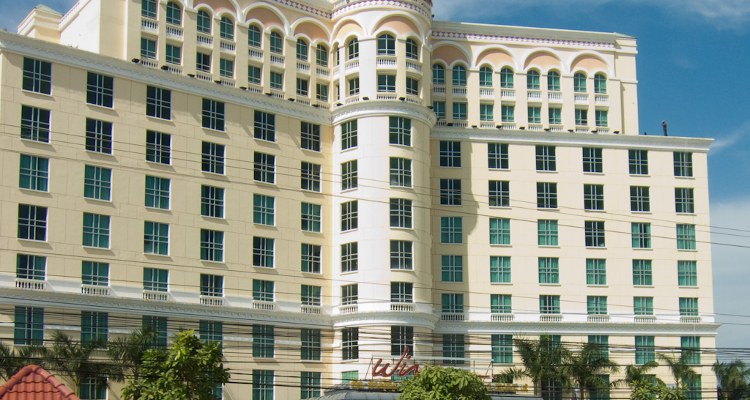Last week’s decision by Vietnam to partially lift its long-standing ban on locals gambling at casinos in the Asian nation could reportedly help to spell the “death knell” for numerous border casinos in neighboring Cambodia.
According to a report from The Cambodia Daily newspaper, a draft decree published by the Vietnamese government on Friday plans to institute a three-year trial that would allow well-off locals to wager at approved domestic casinos with such venues already thought to have been approved for the tourist islands of Van Don and Phu Quoc. The new regulations would see Vietnamese citizens with a monthly income of at least $450 permitted to gamble while operators would be required to invest a minimum of $2 billion in order to obtain a gambling license.
Cambodia has some 65 casinos and the venues reportedly brought in combined tax revenues of $43.4 million during the first eleven months of 2016. But, about a quarter of these enterprises are located along the nation’s border with Vietnam primarily around Bavet City in Svay Rieng Province, which lies approximately 70 miles from the metropolis of Ho Chi Minh City, and rely heavily on foreign players.
Anthony Galliano, Chief Executive Officer for financial services firm Cambodian Investment Management, reportedly told the newspaper that the Vietnamese decree, which is expected to take effect from March 15, would be “a singular severe blow to [Cambodia’s] outskirt casino towns” and could combine with previously announced domestic legislation instituting higher minimum capital requirements along with a stricter tax regime to spell “the death knell for the already struggling border casinos”.
Galliano reportedly told The Cambodia Daily that a number of Cambodia’s border casinos are already on “life support” and need “government incentives rather than a regulatory blow” in order to “save jobs and prop up the industry”.
Ben Lee, Managing Partner for Macau-based consultancy firm IGamiX told the newspaper that Cambodia’s casinos along its border with Vietnam have been “struggling” for some time with at least six having recently closed. Of the remaining establishments, he proclaimed that “even those are struggling and the shuttered ones are unable to be sold” as wealthier gamblers have begun travelling further afield including to establishments in Australia and Singapore.
However, Ros Phearun, Deputy Director-General for Cambodia’s Economy And Finance Ministry, is optimistic and explained that the effects on the Cambodian gambling industry of local-friendly casinos in Vietnam may not be immediate.
“Vietnam isn’t opening [casinos] broadly, only in the north and south, but in the future if it opens more there might be a significant impact,” Phearun told the Khmer Times newspaper. “Of course, we will definitely get some effects by the new move from the Vietnamese government but that doesn’t mean that these severely affect the whole industry here because [Vietnam] is to only let local people gamble at two selected casinos, which are really far from us. I don’t see many Vietnamese from the north coming to gamble in Bavet City. I don’t think [Vietnamese] people will spend many hours driving so far to a casino.”


